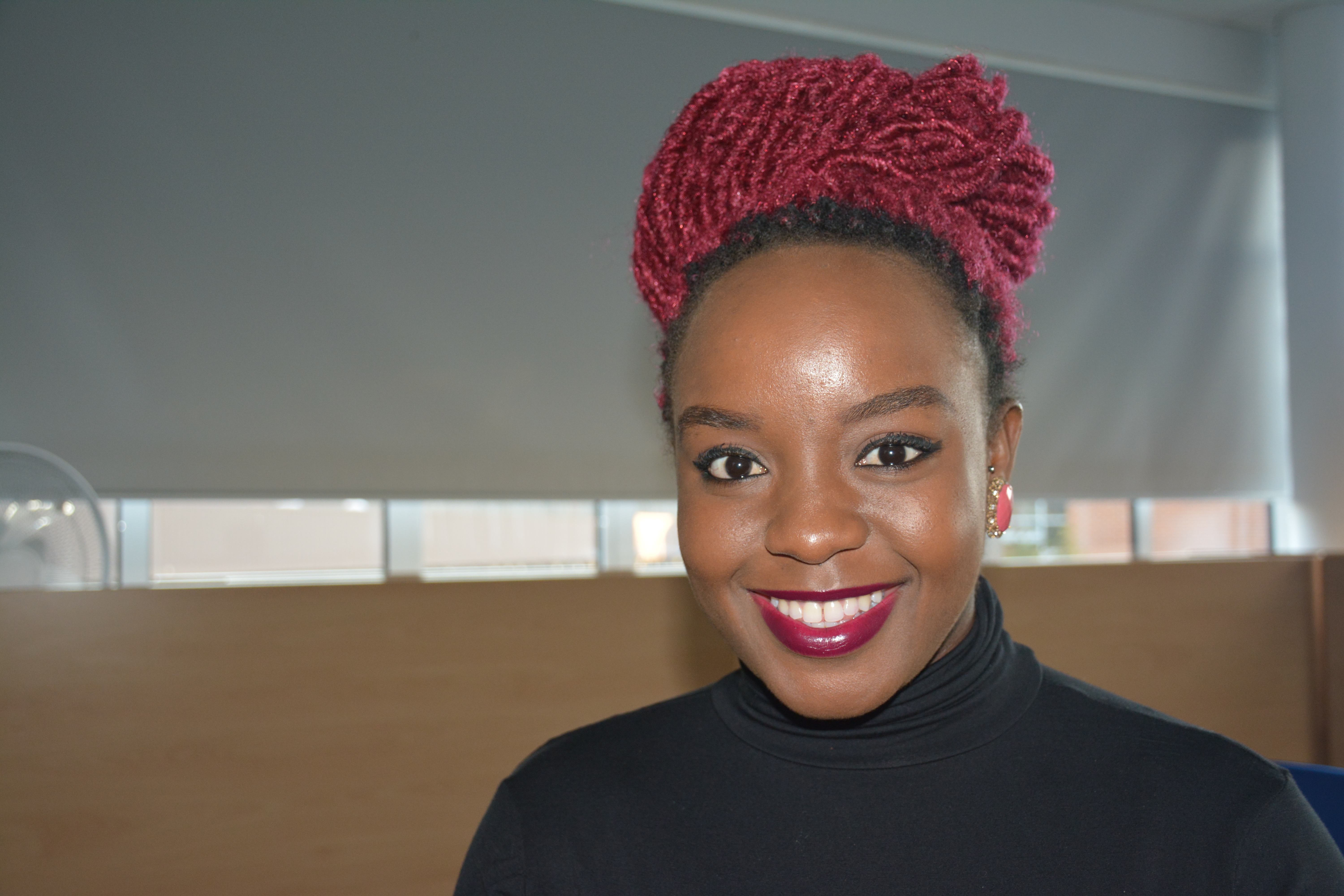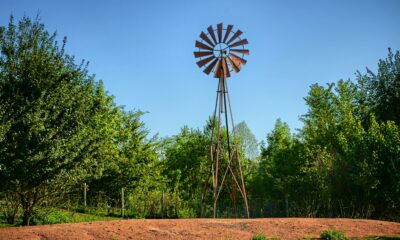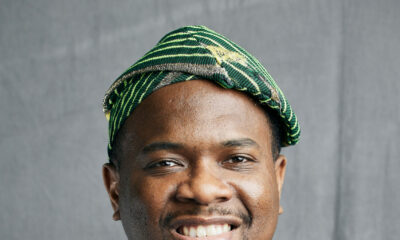Features
BN Climate Change Conversation: Jennifer Reminds us that We Have a Crisis on Our Hands & We Need to Act NOW
Climate crisis impacts everyone in different ways and as we know, the average Nigerian in Lagos is not the average Nigerian in Bayelsa or Jigawa; but whether you are a working professional or a local farmer, an observation of extreme, unpredictable weather conditions over the years is apparent. People notice that things are changing, and they are usually able to immediately connect these extremities to issues like food insecurity (or scarcity).
 We continue our Climate Change Conversation with Jennifer Uchendu, the founder of SustyVibes. If you’ve not been following the series, you can catch up HERE.
We continue our Climate Change Conversation with Jennifer Uchendu, the founder of SustyVibes. If you’ve not been following the series, you can catch up HERE.
From recent floods to heat waves, global warming and much more, we can no longer turn a blind eye to the drastic effect climate change is bringing on our planet today. It is, thus, very important to bring this discussion home to ensure proper enlightenment on this environmental issue which could, in the coming years, become a huge threat to us all.
Today, BellaNaija is bringing you our conversation with Jennifer, who is a Sustainable Development Enthusiast. Jennifer is not just passionate about our environment, but is also one of the few people working on the climate crisis and other development projects across Nigeria. Through her work at SustyVibes, Jennifer focuses on projects around climate change, eco-feminism, youth development, and pollution. We’re happy she agreed to share her insight with us and we hope you learn as much as we did.
Jennifer, climate change is something that has slowly over the past 10 years garnered more traction in the news cycle. How important should Nigerians take the issue?
I have interchanged Climate Change with Climate Crisis as I believe it is a more appropriate term to describe our current era.
Not losing sight of the realities of our socio-economic challenges like poverty, hunger, unemployment and so on, the climate crisis creates an alarming risk of exacerbating every other challenge faced by the human race; it is essentially not just our climate changing, but everything changing. The question for a country like Nigeria will be our readiness to these “change in terms” of adaptation, resource management and mitigation (where possible).
According to the USAID program vulnerabilities for Nigeria, our forests, freshwater, coastal zones, and biodiversity are all at risk of the impacts of the climate crisis. Now, consider the population of Nigerians that depend on these bodies for their livelihood.
Moreso, island states (like Lagos) within the Gulf of Guinea are vulnerable to sea-level rise and a rise as little as a 0.5M increase will require 27 – 53 million people to relocate.
Think about erosion, drought, flooding and natural disasters that will be worsened (and even caused) by the climate crisis.
We need to know about the crisis and think more about our roles in climate action – as individuals, employees/entrepreneurs and national citizens. There’s so much to be done in so little time.
That being said, how would you describe the impact of this crisis to the average Nigerian?
Climate crisis impacts everyone in different ways and as we know, the average Nigerian in Lagos is not the average Nigerian in Bayelsa or Jigawa; but whether you are a working professional or a local farmer, an observation of extreme, unpredictable weather conditions over the years is apparent. People notice that things are changing, and they are usually able to immediately connect these extremities to issues like food insecurity (or scarcity).
For some people – mobility has become more complex in the face of flooding, erosion and extreme weather. For some others, they have been impacted by the insecurity that has arisen from herder/farmer clashes and even Boko Haram tensions – all of which have linkages to drought and loss of Greenlands, Lake Chad shrinkage .
In your experience, and based on your research, how long do we have left before we start feeling the real impact of climate change?
Scientists have been explaining to us that the planet has been getting hotter consistently and this is because of the injection of greenhouse gases into the atmosphere. These greenhouse gases occur naturally, but a lot of our human activities (like burning fossil fuel for energy) have increased their amounts in the atmosphere – these high levels have caused the global warming effect; which is irreversibly changing our climate and threatening life on earth.
We have already started experiencing the impacts of the climate crisis in Nigeria – from unpredictable weather patterns, intense droughts, and deforestation. Notably, climate action is also giving rise to the idea of resource trapping; that is many economies are moving from oil dependency and diversifying to other forms of business trade. For Nigeria, this leaves our very oil-dependent economy in an uncertain position for our economy in the near future.
Scientists say that we have less than 12 years for the effects to really kick in drastically; a lot of what we’ll see are resource wars. South Africa is already experiencing water crisis; Lake Chad’s shrinkage is already displacing several young people in Northern Nigeria and loss of livelihoods from droughts and deforestation are pushing young girls further into child marriage. The climate crisis is here already. Many parts of Asia and Africa have started feeling the impacts more significantly than others.
What would you say to people who believe that Nigerians have bigger problems like hunger, no healthcare, no education, and Climate Change should be the least of our worries?
I believe their stance is clearly understandable. Africa contributed the least to global warming and yet is hit the hardest by the impact (think of the Cyclone Idai in Mozambique and the death toll reported to have gotten to 1000). But in the view of our predicament, we cannot sit back and say it is not our problem, the climate crisis makes other issues like poverty, health, food security and education worse off. We need to think about how we will cope with these changes, what we can do in our own (however) little way to reduce the impacts. We can’t keep playing the victim; we must demand support from the west but we must also play our parts.
In the midst of our other priorities, we have to pay attention to the plastic crisis we are currently facing. It’s our oceans that are being clogged up by plastic, our marine life dying. We need to actively rethink our relationship with plastics, encourage recycling and reuse, avoid littering in any form and encourage cleanups. We can’t spend money on a dead planet.
So true. What should every Nigerian incorporate into their daily life to stave off the negative impact of climate crisis?
Avoid food waste: Not just because of the fact that food wastes that get to the landfill are able to contribute to greenhouse gas (methane) emissions and contribute to global warming, but because food insecurity is real and we need to avoid waste.
Reduce meat consumption: Meat demand and consumption contributes to global warming in a very frightening way. While folks like Beyonce advocate Veganism; we know it’s difficult for us considering our meat-based culture. I advocate flexitarianism, which basically means reducing meat and milk as much as possible in your diet. It’s not just good for the planet, it’s good for your health too. Read my article on flexitarianism here to learn more.
Conserve energy: Much of our energy comes from coal which gives off carbon; a greenhouse gas when used to generate energy, thereby contributing to the climate crisis. We can conserve the energy we use in our houses when we use energy-efficient bulbs. Switch off appliances when not in use, use less water and all that responsible stuff.
Encourage public transport: Only when possible and safe; public transport is an ideal way to reduce emissions. We always encourage pool car rides for our events, the rides contribute to emissions; we have to make it worth it to have more people being transported in the process. The future is electric and solar cars but while we are on our way there, we can minimise waste. public transport where possible, safe and convenient is a plausible option.
Learn more about the climate crisis and how it impacts your work – because it affects us in different ways; farmers have a different experience from pilots or urban planners and young people all over the world are joining global strikes because of the future impacts it will have on their lives where they are older. We need to know the ways we can support actions against the crisis.
Using natural lightening as opposed to bulbs during day time, eating less meat, avoiding waste are very low hanging options.
There are Nigerians who already do these things but they face certain challenges. Can you talk about those challenges and do you have any advice on how they can overcome these challenges?
There is a scarcity of eco-friendly options. Most times, people have to spend more to live greener lifestyles; this happens everywhere but it’s harder in Nigeria, and SustyVibes is working on an initiative to solve this problem.
Some of them also say they want opportunities to run projects and do more for their communities; we always encourage them to write us on [email protected] and we’ll talk through their projects and possibly work with them if the projects are low hanging and feasible.
Another big challenge is recycling in Nigeria. I understand that governments like Lagos are being proactive with centralizing recycling for many – so that it is inclusive for everyone. More states need to copy that. The private sector (like the Fast Moving Consumer Goods industry) sells and produces plastics; they are also developing initiatives to encourage recycling and alternative packaging. We are on track; the only issue will be bureaucracy and corruption, but there are watchdogs looking and reporting these issues.
Speaking of bureaucracy, how does the government come in? How can our leaders pro-actively join the fight to save the planet?
They need increased advocacy efforts in sensitizing the public on the climate crisis and its impacts. This can be done with mass media – radio, photography, newspapers, etc. They also need to localize interventions and contextualize them for communities. While some are facing issues with droughts, some have flooding, so they need to be proactive and consider issues of climate crisis as emergencies that they are. More support should be given to groups working tirelessly on climate crisis in Nigeria via grants, technical support, and endorsements.
At the federal level, a lot more can be done beyond speeches at conferences. The ministry of environment needs to be empowered to lead more projects; the climate change bill has to be signed; lobbying for more support for climate adaptation to help poor communities adapt to the crisis needs to be done and overall – we need a plan; understanding where we are and how we will survive in the coming years is critical for our sustainable development agenda.
Please tell us about the non-governmental organizations within Nigeria that are championing this cause, so that our readers can support
Several youth-led initiatives are leading the pack. Our organisation, SustyVibes has a large youth community working on the climate crisis and other development projects across Nigeria. You can apply to join our community, donate and support our work www.sustyvibes.com
LUFASI park (www.lufasi.org) works tirelessly on conservation and advocacy efforts – they are totally worth supporting.
How do you suggest that our readers educate their friends and family who are not on social media?
Start off conversations on our relationship as humans to the environment; the very source of our lives. Many people do not sit to think about where our oxygen comes from or the role of trees in climate action. We need to have more conversations on environmental protection and encourage local action happening within communities. SustyVibes and other groups work in many communities, partnering with committed folks who want a cleaner, more sustainable environment.
What is one thing you want everyone reading this should take away from this?
We are a part of nature and not apart from it. It is a closed cycle where we get what we put out – we need to be more mindful and protective about our environment and it starts with the little actions we take. Decide today to stop littering and to stare down on pollution where you see it happening around you. This way, you are beginning to play your part in securing the planet for yourself and future generations.
Thank you so much for your time, Jennifer. Where can our readers connect with you to learn more about the work you do and how they can implement the tips shared here?
You can connect with SustyVibes on Twitter, Instagram, YouTube
**
Hey BellaNaijarians, if you enjoyed our interview with Jennifer Uchendu then you’ll probably like our chats with Adefolake Adekola and Funmi Oyatogun as well.





















